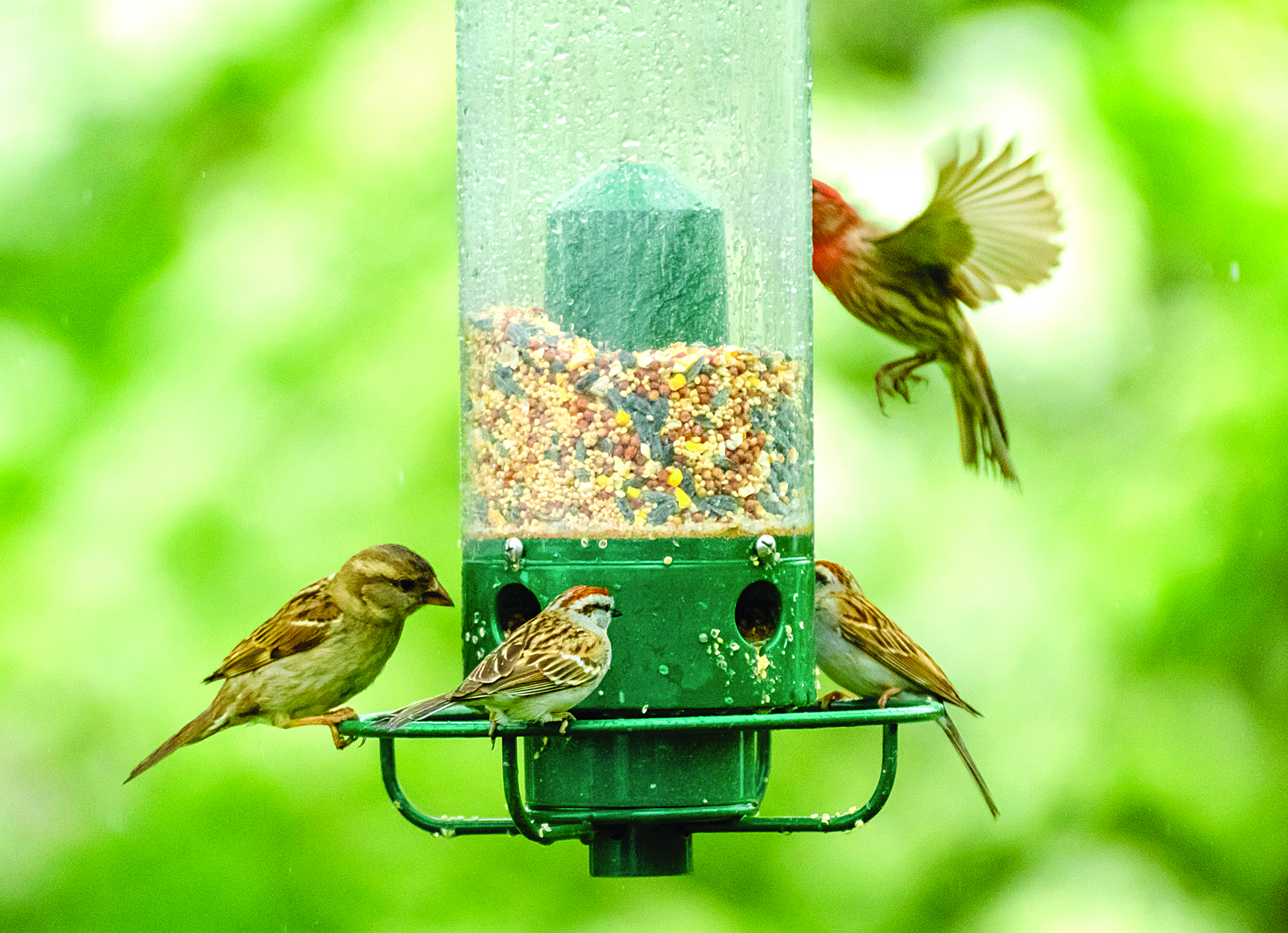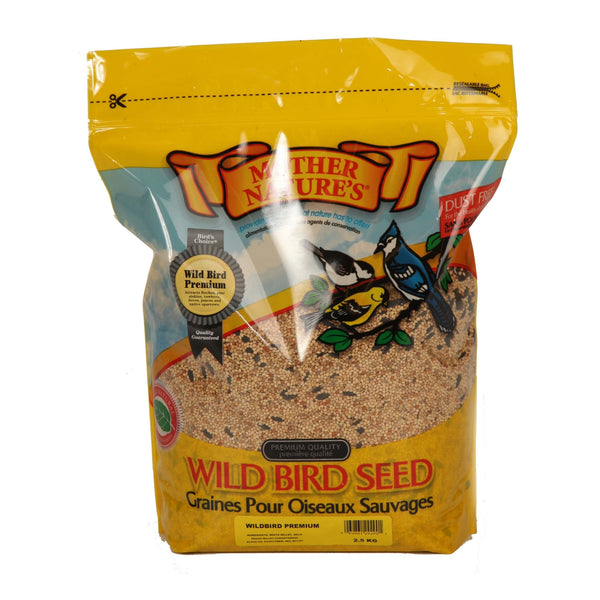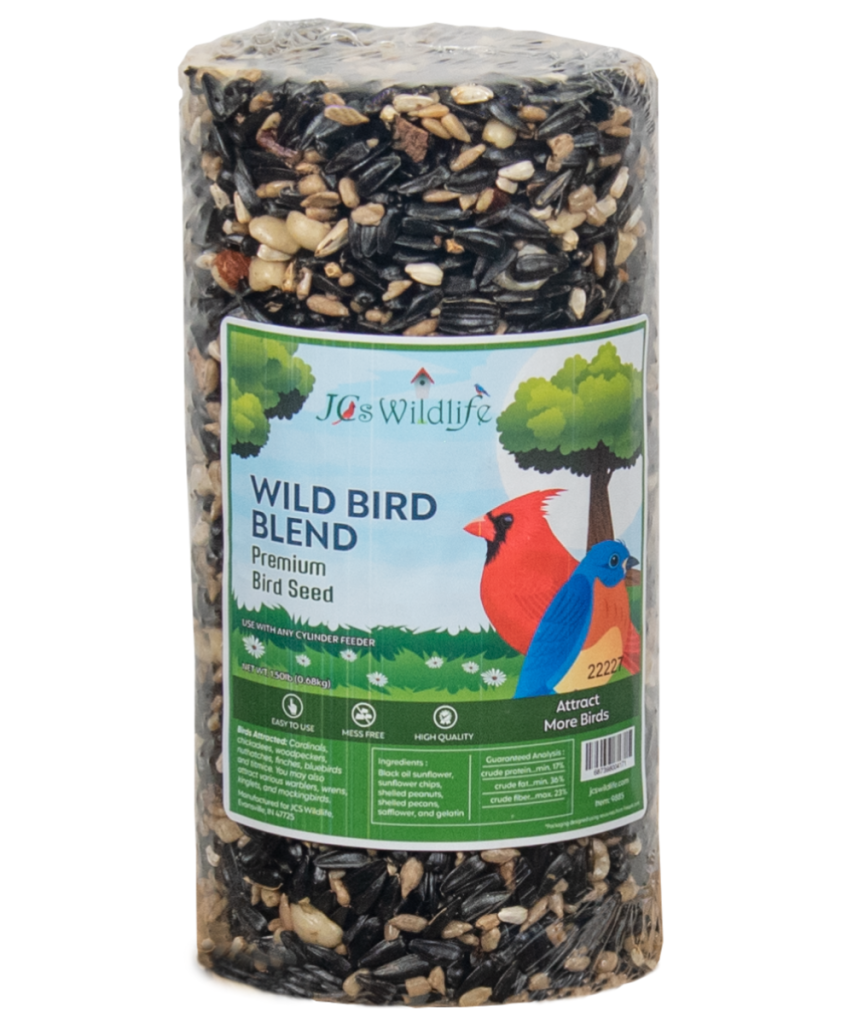Have you ever wondered how long your bag of wild bird seed will keep its freshness? If you’re passionate about feeding your feathered friends, this is a question you can’t afford to overlook.
The lifespan of your wild bird seed can make all the difference in attracting vibrant, healthy birds to your backyard. Imagine the satisfaction of seeing a variety of birds flocking to your feeders, knowing you’ve provided them with the best nourishment possible.
But, how do you ensure that your bird seed remains fresh and appealing over time? Read on to uncover the secrets to maintaining the quality of your wild bird seed and keep your backyard bustling with life.

Credit: localgardener.net
Shelf Life Of Wild Bird Seed
Wild bird seed can last for a long time if stored properly. Knowing how long it stays fresh helps you feed birds safely. Old seed may lose nutrients and attract pests.
In this article, we look at what affects seed shelf life. We also explain which types of seeds last longer.
Factors Affecting Longevity
Several things change how long bird seed stays good. These include storage, moisture, and seed quality.
- Storage Conditions:Keep seed in a cool, dry place. Heat and humidity shorten shelf life.
- Packaging:Airtight containers protect seed from air and pests.
- Moisture:Wet seed can mold quickly. Always keep seed dry.
- Seed Freshness:Older seed loses nutrients and may not attract birds.
- Exposure to Air:Oxygen can cause seed oils to go rancid.
Types Of Bird Seed And Their Durability
Different seeds last different times. Some seeds have oils that spoil faster. Others stay fresh longer.
| Type of Seed | Typical Shelf Life | Notes |
|---|---|---|
| Black Oil Sunflower | 6 to 12 months | High oil content, stores best in cool place |
| Safflower | 12 months | Low moisture, less prone to spoilage |
| Millet | 12 to 18 months | Small seed, stores well if dry |
| Cracked Corn | 6 to 12 months | Can mold if moist, store in airtight container |
| Nyjer (Thistle) | 6 to 9 months | High oil content, needs cool storage |

Credit: www.wynnstay.co.uk
Signs Of Spoiled Bird Seed
Bird seed can spoil over time, especially if stored in damp or warm places. Knowing the signs helps keep birds safe and healthy.
Check your bird seed regularly for changes. Spoiled seed can harm birds and waste your money.
Visual Indicators
Look for any mold, discoloration, or clumps in the seed. Fresh seed looks dry and clean without dark spots.
- Mold growth is usually white, green, or black
- Seeds that stick together may be damp or rotten
- Discoloration or faded colors show age or spoilage
Smell And Texture Changes
Spoiled bird seed often smells musty or sour. Fresh seed has a neutral or slightly nutty scent.
The texture changes when seed is spoiled. It may feel damp, sticky, or soft instead of dry and firm.
- Musty odors mean mold or mildew is present
- Sticky or clumpy seed shows moisture damage
- Soft seeds may be old or starting to rot
Impact On Bird Health
Feeding spoiled seed can cause birds to get sick. Moldy seed may lead to respiratory problems or poisoning.
Birds might avoid eating bad seed or show signs of distress after eating it.
- Respiratory issues due to mold spores
- Digestive problems from rotten seeds
- Weakness or loss of appetite
Storage Tips For Freshness
Wild bird seed can last a long time if stored properly. Keeping it fresh helps birds get the best nutrition.
Good storage stops the seed from going bad. Here are tips to keep your bird seed fresh for longer.
Ideal Containers
Use containers that keep air and moisture out. This helps keep seeds fresh and stops them from spoiling.
Containers with tight lids work best. Avoid bags that tear or open easily.
- Plastic bins with sealed lids
- Metal containers with airtight seals
- Glass jars with screw tops
- Storage buckets with gasket lids
Optimal Storage Conditions
Store bird seed in a cool, dry place. Warm or humid areas make seeds go bad faster.
Keep the container away from direct sunlight. Light can reduce seed quality and freshness.
- Ideal temperature: below 70°F (21°C)
- Low humidity to prevent mold
- Dark or shaded storage spots
- Well-ventilated areas to avoid dampness
Avoiding Moisture And Pests
Moisture causes seeds to mold and rot. Keep seeds dry to stop this from happening.
Pests like rodents and insects can eat or spoil the seed. Use pest-proof containers to protect your supply.
- Check containers regularly for leaks
- Use sealed lids to block pests
- Keep storage off the ground
- Clean storage areas to avoid attracting bugs

Credit: purityfeed.ca
Buying And Using Bird Seed
Bird seed is a great way to attract wild birds to your yard. Knowing how long it lasts helps you feed birds fresh food.
Buying the right seed and storing it well keeps birds healthy. This guide covers key tips for using bird seed properly.
Choosing Quality Seed
Good quality seed has a big impact on bird health and how long the seed lasts. Look for clean, fresh seed without dust or mold.
Seeds with shells or husks last longer. Avoid seed that smells bad or looks old. Fresh seed attracts more birds.
- Pick seeds free from dirt and broken pieces
- Check for a fresh, mild smell
- Choose seeds with intact shells
- Avoid mold or discoloration
Buying In Bulk Vs Small Quantities
Buying bulk seed is cheaper but risks spoilage if not used fast. Small amounts stay fresh longer but cost more per pound.
Think about how often you feed birds and how much they eat. Buy seed you can use within a few months for best results.
- Bulk seed is good for frequent feeders
- Small bags suit occasional feeding
- Use seed within 30 to 60 days to keep it fresh
- Store bulk seed properly to extend its life
Proper Handling Practices
Storing seed correctly keeps it fresh and safe for birds. Keep seed in a cool, dry place away from pests and moisture.
Use airtight containers to stop bugs and mold. Check seed regularly for signs of spoilage and discard old seed.
- Store seed in sealed, airtight containers
- Keep seed away from sunlight and heat
- Check for mold or bugs every few weeks
- Use clean scoops or gloves to handle seed
Extending Shelf Life Naturally
Wild bird seed can last longer with proper care. Keeping seed fresh helps birds stay healthy.
Simple natural methods can protect bird seed from spoiling and pests.
Freezing Bird Seed
Freezing bird seed kills insect eggs and stops mold growth. Keep the seed in airtight bags before freezing.
Remove the seed from the freezer and let it reach room temperature before use. This keeps seed fresh and safe for birds.
Rotating Stock
Use older seed first to prevent waste. Store new seed behind older stock for easy rotation.
- Label seed bags with purchase dates
- Keep seed in a cool, dry place
- Use seed within 6 months for best quality
- Buy small amounts often to keep seed fresh
Regular Inspection
Check your bird seed often. Look for signs of mold, insects, or moisture.
| Problem | What to Do |
| Moldy seed | Discard immediately |
| Insect presence | Freeze seed or replace |
| Moist seed | Dry seed before storage |
Frequently Asked Questions
How Long Does Unopened Wild Bird Seed Last?
Unopened wild bird seed can last up to one year when stored properly. Keep it in a cool, dry place to maintain freshness and prevent mold or pests.
Can Expired Wild Bird Seed Still Be Used?
Expired bird seed may lose nutritional value and attract pests. It’s best to check for mold or insects before using, and discard if the seed looks or smells off.
How Should I Store Wild Bird Seed For Longevity?
Store wild bird seed in airtight containers in a cool, dry area. Avoid moisture and heat to prevent spoilage and extend the seed’s shelf life.
Does Humidity Affect Wild Bird Seed Shelf Life?
Yes, high humidity can cause wild bird seed to spoil quickly. Moisture promotes mold growth and reduces seed quality, so keep seed dry for maximum shelf life.
Conclusion
Wild bird seed lasts best when kept dry and cool. Seeds can lose freshness after several months. Check for mold or bugs before feeding birds. Store seed in airtight containers to keep it fresh. Feeding fresh seed helps birds stay healthy and active.
Remember, old seed may not attract many birds. Proper storage extends seed life and saves money. Keep bird feeders clean to prevent seed spoilage. Enjoy watching birds visit with fresh, tasty seed. Simple care makes bird feeding more rewarding and fun.

